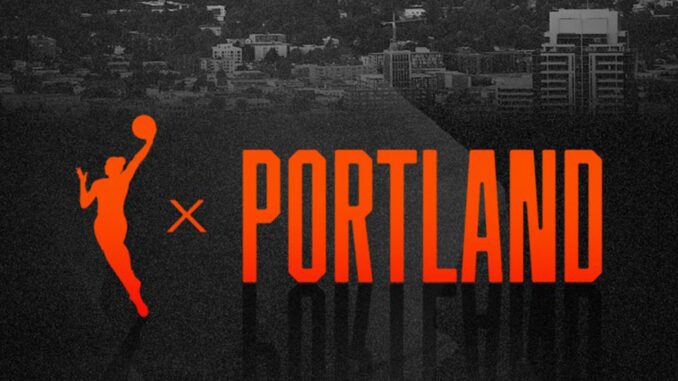
After a series of stops and starts, the WNBA is back in Portland.
For real, this time.
Last spring, an effort to return the league to Portland fell apart spectacularly at the 11th hour after the ownership group collapsed.
This week, with a new ownership team in place and the Is dotted and Ts crossed, the WNBA is officially back, and it couldn’t come at a better time.
Women’s basketball has recently received a surge in popularity, with rookies like Caitlin Clark and A’ja Wilson helping to drive resurgent attendance and a summer marked by yet another gold medal by a dominant U.S. Olympic team. The WNBA is doing its best to embrace the moment with increased marketing, player amenities, and compensation.
It is a bold second step into the market for the Bhathal family, which purchased the Portland Thorns last year. When the previous bid to bring the WNBA back fell apart, it was likely that the Bhathals would have to resurrect it, at least if Portland wanted a team anytime soon. There wasn’t any individual or group in Portland that could bring the necessary resources to get a deal done soon. At the time the previous deal fell apart, the WNBA’s statement reflected that reality, saying that “when the time is right, we look forward to pursuing prospects for bringing the WNBA to Portland.”
At that time, it was thought that future arena improvements to the Moda Center could be a sticking point in bringing a team to Portland. Clearly, that is no longer the case, and the WNBA decided it could live with the new Portland team playing at an alternate site for a season or never had qualms about the issue to begin with. The team will play at least its first season in the Moda Center and then will have to find a new home, likely Memorial Coliseum, for two seasons while the Moda Center gets some upgrades.
Playing two seasons in a subpar facility in exchange for the remainder of the team’s future in a world-class one appears to be a risk worth taking for the WNBA. After adding teams to Golden State and Toronto (which slid to the front of the line after the previous Portland bid fell apart), the league easily could have waited until further down the line and started play once the renovations were finished. However, the WNBA is hot right now, and who’s to say if that momentum will continue for five years? While expanding by three teams in two years is certainly aggressive, the time to exploit the league’s momentum is now, when you have a fresh group of marquee names to draw fans to arenas, not in 2030.
For the Bhathals, this move represents a significant commitment to Portland. Having already purchased the Thorns, they have committed themselves to maintaining the world-class status of one brand while building another up to that same status. In making both deals they have made a lot of promises. They have pledged to develop a standalone premier training facility for the Thorns and have promised to do the same for the new Portland WNBA team. The Thorns have had an up-and-down season in their first year in charge of that club, but they have already taken some long overdue steps for the team, such as giving them their own standalone website. However, building a practice facility and building a website are two very separate orders of magnitude, and the Bhathals have made some big promises that they will now have to keep.
If they can keep those promises, they’ll continue to have something on their side that not many other Portland professional owners say they possess – goodwill. The Blazers and owner Jody Allen have been stuck in limbo and a rebuild for years; the Timbers are currently stuck with Merrit Paulson, who made several dubious hires and, at the very least, abetted a culture that covered up a history of sexual discrimination and abuses and botched a primary sponsorship by bringing in a company whose upper-level executives did the same. The bar for the Bhathals to clear is low, but they still have some work to do to get over it.
Ultimately, it may prove that getting the team to Portland was the easy part. Portland will be the first market that the WNBA has re-entered after leaving, and there will be hard work to prove that the second Portland WNBA team will fare better than the first. That includes creating a team name, building out a front office and coaching staff, developing a season ticket and sponsorship base, and acquiring players that will help the team fill seats regularly.
It took some time to get there, but Portland has finally proven it can attract another high-level sports team.
Now, it gets the chance to prove that it’s ready for everything that comes after.




